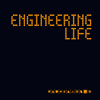Electronic engineering involves the design and testing of electronic circuits that use the electronic properties of components such as resistors, capacitors, inductors,
diodes and transistors to achieve a particular functionality.
Electronic engineers design, develop, research, test and supervise the manufacture of electrical and electronic equipment. They play a key role in producing new innovations in household equipment, telecommunications equipment such as the mobile phone, PC, i-Pod and digital cameras.
Many Electronic engineers work in areas closely related to computers such as medical devices, artificial intelligence and robotics. The focus of their work is often on designing new products, maintaining and testing electronic equipment and coming up with technical solutions to solve operating problems. Their work can also involve estimating the time and cost of engineering projects.
Electronic engineering Technicians support engineers in the research, design, development and maintenance of electronic equipment or products. Their work will usually be concerned with the repairs and maintenance of products from digital devices, mobile telephones and personal computers to satellite tracking systems. There are also opportunities in technical sales and technical publications for technicians.
There is evidence of a current shortage of engineering technicians available to industry because the majority of those who qualify at technician level go on to degree level.
Electronic engineering is also a significant growth area both in Ireland and abroad. Career opportunities open to electronic engineers, technologists or technicians in this discipline can be found with:
- Electronic component manufacturers
- Telecommunications companies and corporations
- Electrical power utility companies
- Research and education
- Civil Service and government
- Radio and television service providers
Micro and Nanoelectronics
Microelectronics and Nanoelectronics, including semi-conductors, are key players in the rapidly changing ICT sector. Every eighteen months, the speed of computer processors doubles. Integrated Circuit (IC) Technology has evolved so quickly that the processors in smartphones are now more powerful than processors in desktop computers were a few years ago.
Microelectronics and Nanoelectronics are also at the core of the development of green energy wind turbines, energy-aware data centres, medical devices, and a myriad of other products and devices across the IT, telecommunications and many other industry sectors, as well as being central to Cloud computing, Mobility, and IoT.
The rapid developments in micro and nanoelectronics increase demand for a range of engineers with strong core engineering skills, alongside software development skills, to ensure the development of applications and solutions to enable the technologies to work.
|
Useful Career Sheets from STEPS to Engineering [pdf files]
|
||
|
Electrical
Engineering |
Electronic
Engineering |
Engineering Life
|



